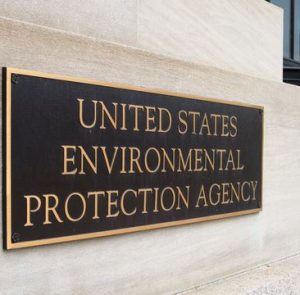
Decision by U.S. Court of Appeals Forces EPA to Reconsider Loophole from Pollution Limits During Startups
Washington, D.C. – In a major victory for environmental organizations, a court today ruled that the U.S. Environmental Protection Agency must go back to the drawing board and reconsider a loophole it created for power plants, allowing them to avoid complying with pollution limits on mercury, arsenic, and other hazardous air pollutants during plant startups.
The decision by the U.S. Court of Appeals for the District of Columbia Circuit does not immediately eliminate this loophole that EPA granted in 2014 for coal-fired power plants during their startup periods.
However, the decision means that EPA must now consider stronger air pollution control regulations. If EPA attempts to maintain the loophole, environmental groups believe that the agency will face an uphill battle in convincing the courts that the loophole is lawful.
“Today’s court decision is an important win for public health and everyone living downwind of coal-fired power plants,” said Patton Dycus, a Senior Attorney for the Environmental Integrity Project who led the legal effort by the Chesapeake Climate Action Network, Earthjustice and Sierra Club.
“This opinion forces EPA to come to grips with the critical objections we raised about this illegal loophole that EPA created for dirty power plants during their startups,” Dycus said. “We’re hopeful that EPA will do the right thing and remove the loophole.”
Anne Havemann, General Counsel for the Chesapeake Climate Action Network, said: “At a time when public health is at the forefront of everyone’s minds, we’re glad to see the court recognize the public health implications of this EPA loophole that allows coal plants to emit unchecked amounts of mercury, arsenic, and other toxic pollutants when they start up.”
“This decision is a win for public health,” said Earthjustice Attorney Neil Gormley. “The court found that EPA cut corners when it created a loophole that allows coal plants to emit more pollution. Now communities have an opportunity to show EPA that stronger health protections are needed from air pollutants that poison our children and cause thousands to die prematurely.”
In 2012, EPA introduced its Mercury and Air Toxics Standards rule for coal- and oil-fired power plants. The rule set standards nationally for hazardous air pollutants, including mercury, which can cause brain damage; arsenic, chromium, cadmium and nickel, all known carcinogens; hydrogen chloride, selenium and other pollutants.
In 2014, EPA relaxed the rule to allow power plants to avoid complying with numeric pollution limits on these pollutants for four hours every time they start up, when more pollution can pour from the smokestacks as control equipment is brought online.
Power plants typically have nine to 10 startup events every year. But some plants report more than 100 startup pollution events annually.
The Environmental Integrity Project, CCAN, Sierra Club and Earthjustice all challenged this loophole in court in 2015, arguing in part that EPA did not give the public a fair opportunity to comment on the rule. The environmental groups also argued that the loophole conflicted with EPA’s Acid Rain regulations, which have long required power plants to comply with numeric limits during startup.
The U.S. Court of Appeals for the District of Columbia Circuit today ruled that it was wrong for EPA to deny the groups’ petition to reconsider the loophole. This sends the rule back to the agency for reconsideration and possible revision.
The Environmental Integrity Project is an 18-year-old nonprofit, nonpartisan organization, based in Washington D.C. and Austin, Texas, that is dedicated to enforcing environmental laws to protect public health.
The Chesapeake Climate Action Network (CCAN) is the first grassroots, nonprofit organization dedicated exclusively to fighting global warming in Maryland, Virginia, and Washington, D.C.\
Media contact: Patton Dycus, Attorney, Environmental Integrity Project (404) 446-6661 or pdycus@environmentalintegrity.org


